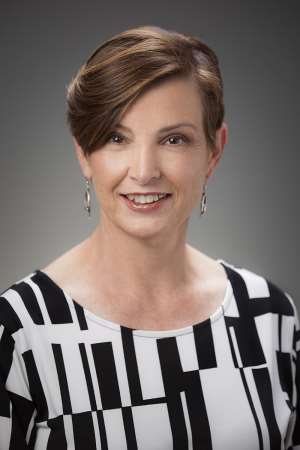
What keeps a mother on her knees as she prays for her wounded soldier son? What keeps family members beside a hospital bed throughout the long night? What keeps a father calm as he holds the hand of his child diagnosed with cancer?
What springs up into the mind of a high school senior as she/he gazes upon the college admission envelope before it’s opened? What burns in the souls of civil rights activists living among refugees of war? What accompanies a lifelong dream?
What keeps a parent sustained when searching for a lost child? What settles a person diagnosed with schizophrenia as he/she tries multiple medications seeking relief from debilitating symptoms. What is the companion of an innocent man inside the walls of a prison?
The phenomenon of hope is perplexing, powerful, and potent. Medicine, religion, and psychology acknowledge, accept, and embrace hope.
Katherine Paquette, a palliative care nurse reflected upon the suffering of her patients.
“That is when I started thinking about hope. I began to ask myself, how do patients and families do this? I saw it every day, over and over, rejoicing and despairing, bargaining and praying, hanging on to the unraveling threads of life and weaving a new blanket of warmth for their souls. It was during this time that I questioned what it was that allowed people to cope with the crisis of acute illness. I came to believe that it was hope and that this hope has many forms, dimensions and qualities. I realized that hope was about finding possibilities and nursing enabled possibilities.” www.digitalcommons.uri.edu/.
Hope is referenced often in the Bible, the Torah, the Koran, and other religions/spiritual texts across the globe. Hope lives in the eternal human spirit as we hope for peace in sacred places.
We hope for peace on earth. We hope for peace in war-torn countries. We hope for peace in homes. “May your choices reflect your hopes, not your fears,” voiced Nelson Mandela.
In 1991, the positive psychologist Charles R. Snyder and his colleagues developed the Hope Theory. Hope is about persistent in achieving goals and the many pathways that get us there.
Hope in the healing process is a piece of recovery that can turn a victim into a survivor; addiction into sobriety; self-rejection into self-acceptance.
“One thing I can tell you is that hope is an emotion that springs from the heart, not the brain. Hope lays dormant until its amazing strength is beckoned, supplying a sheer belief that you will overcome, you will persevere and you will endure anything and everything that comes your way,” surmised Dale Archer M.D., in a 2013 article for Psychology Today.
Hope—just when we think we can’t take one more step—we do. Hope—we grab on and hold on. Hope—we carry it around in our pocket.
The American Cancer Society has a place where cancer patients and their caregivers can find help and hope when home is far away. It’s the American Cancer Society Hope Lodge. Currently, there are 30 Hope Lodge locations throughout the United States and Puerto Rico.
GenerateHope in California is a faith-based organization providing long-term, comprehensive safe-housing and complex trauma recovery programs to survivors of sex trafficking.
Stories about hope abound on the internet. Struggling people who faced adversity and obstacles, yet persevered and overcame.
When my mother died unexpectedly, the loss brought devastation and desolation. The longest year of my life passed much too slowly as I grieved, cried, and isolated in my house. I searched in the darkest darkness for a glint of light—a grain of hope. The smallest of hope—that the overpowering pain would fade away. I did not lose faith—my belief in the afterlife is secure. But for a while I lost hope. How can I live in a world without my mother? Each breath reminded me that I was alive and my mother was dead. But the smallest ember of hope remained inside my spirit. And with time, cherished memories reignited a spark. And remembered stories fanned a flickering flame. Hope rekindled.
What is this thing called hope?
Melissa Martin, Ph.D, is an author, columnist, educator, and therapist. She resides in US.




 There’s nothing you can do for us; just give us electricity to save our collapsi...
There’s nothing you can do for us; just give us electricity to save our collapsi...
 Ghanaian media failing in watchdog duties — Sulemana Braimah
Ghanaian media failing in watchdog duties — Sulemana Braimah
 On any scale, Mahama can't match Bawumia — NPP Youth Organiser
On any scale, Mahama can't match Bawumia — NPP Youth Organiser
 Never tag me as an NPP pastor; I'm 'pained' the 'Akyem Mafia' are still in charg...
Never tag me as an NPP pastor; I'm 'pained' the 'Akyem Mafia' are still in charg...
 Your refusal to dedicate a project to Atta Mills means you never loved him — Kok...
Your refusal to dedicate a project to Atta Mills means you never loved him — Kok...
 2024 elections: I'm competent, not just a dreamer; vote for me — Alan
2024 elections: I'm competent, not just a dreamer; vote for me — Alan
 2024 elections: Forget NPP, NDC; I've the Holy Spirit backing me and nothing wil...
2024 elections: Forget NPP, NDC; I've the Holy Spirit backing me and nothing wil...
 2024 elections: We've no trust in judiciary; we'll ensure ballots are well secur...
2024 elections: We've no trust in judiciary; we'll ensure ballots are well secur...
 Performance tracker: Fire MCEs, DCEs who document Mahama's projects; they're not...
Performance tracker: Fire MCEs, DCEs who document Mahama's projects; they're not...
 Train crash: Railway ministry shares footage of incident
Train crash: Railway ministry shares footage of incident
